
Paper Manufacturing Saudi Arabia
On 1st April 2023 ICIEC issued a US$52 million Comprehensive Short-Term Policy (CSTP) in favour of Juthor Paper Manufacturing Co. (JPMC), a member of the MEPCO Group in Saudi Arabia.
JPMC, which is based in the King Abdullah Economic City, is the Middle East’s leading paper manufacturer with a comprehensive range of products spanning facial tissues, pocket tissues, napkins, toilet paper, kitchen towels and C-fold products, utilizing state-of-the-art technology and facilities.
The CSTP, which is a credit insurance product aimed at corporates, protects the company’s balance sheet, and insures export sales against commercial and political risks ranging from non-payment of obligations, delays of payments due to foreign exchange restrictions, political tensions, civil unrest and expropriation. The CSTP for Juthor Paper Manufacturing Co has a tenor of 365 days and gives 90 percent coverage of the policy amount, and covers clients (buyers and distributors) of JPMC in several countries.
The CSTP was issued to Juthor after the company approached ICIEC seeking its support in covering JPMC’s open accounts sales in the domestic Saudi market and in several other markets in the GCC, Europe and some African countries. ICIEC duly obliged with the relevant policy and advice on the right credit decision. The multilateral insurer is duly underwriting JPMC’s buyers and distributors after a thorough assessment and due diligence on each counterparty.
The development impact of the ICIEC-backed facility and the JPMC plant and manufacturing activity are “closely” aligned to the UN Sustainable Development Goals (SDGs) – Goal 8, which promotes decent work and Economic Growth, and Goal 9, which supports industry, innovation and infrastructure development. At the same time, they are also aligned with JPMC/MEPCO’s sustainability agenda and Saudi Vision 2030, which has environmentally and socially responsible business practices among its key priorities underpinning the Kingdom’s stated policy of transitioning to Net Zero by 2060.
Mobilizing funds for large capital-intensive infrastructure projects in ICIEC Member States, such as building bridges, airports, and state-of-the-art medical facilities, and improving access to finance for SMEs and encouraging infrastructure investments through risk mitigation instruments for banks and medium/long-term financing, are core components of ICIEC’s operational strategy. In 2022, ICIEC supported US$427 million in trade and investment related to the infrastructure sector.
Similarly, they are also closely aligned with ICIEC’s own sustainability strategy, which is based on the firm belief that trade and investment facilitation is an effective vehicle to achieving the SDGs. ICIEC contributes to the achievement of the SDGs in three keyways. Firstly, it contributes to the Islamic Development Bank Group’s 10-Year Strategy (2015–2025), which is aligned with the SDGs. Secondly, the ICIEC mandate is to support sustainable economic development in its Member States through the provision of its services. Thirdly, ICIEC acts as a catalyst for mobilizing private sector capital and directed towards achieving the SDGs.
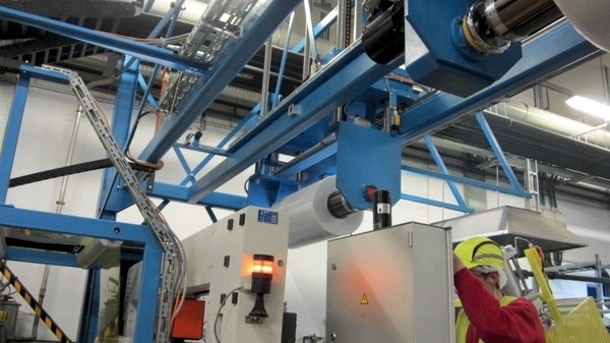
Packaging and Trading Lebanon
On 1st May 2023, ICIEC issued a US$10.5 million Global Alliance Policy (GAP) in favour of Middle East Packing and Trading Limited (MEPTICO), Lebanon’s leading food manufacturing and processing company.
With over 50-year operating history, MEPTICO produces high-quality food and beverages while maintaining the highest safety standards with its customers and suppliers. Its products are exported to Jordan, UAE, Europe and some African countries. Indeed, fronting the MEPTICO business is the Global Alliance Policy which aims to ensure that the business practices and processes comply with the highest accountability and transparency standards.
The GAP is a type of Trade Credit Insurance (TCI) that covers all or a substantial part of a vendor’s sales. Whole turnover insurance typically covers only short-term trade credit, with the policyholder agreeing to insure all its accounts receivable worldwide or all its receivables in a particular region or with a particular customer. TCI is a method for protecting a business against its commercial customers’ inability to pay for products or services, whether because of bankruptcy, insolvency, or political upheaval in countries where the trade partner operates.
ICIEC’s GAP-linked TCI has a tenor of 180 days, with up to 90 percent of potential losses covered. The policy is aimed at corporates and protects the company’s balance sheet and insures export sales against commercial and political risks ranging from non-payment of obligations, delays of payments due to foreign exchange restrictions, political tensions, civil unrest and expropriation. The TCI covers clients (buyers and distributors) of MEPTICO in several countries, including Jordan, UAE, Europe and some African states.
ICIEC’s role was to facilitate the issuance of the Trade Credit Insurance policy under the GAP arrangement in order to support export sales on an open account basis. By having this policy, MEPTICO will be able to safely increase their sale.
The development impact of the ICIEC-backed facility and the MEPTICO plant and manufacturing activity are “closely” aligned to the UN Sustainable Development Goals (SDGs) – Goal 2, which promotes Zero Hunger, Goal 3, which supports good health and wellbeing, and Goal 8 which promotes decent work and economic growth.
SDG Goal 2 envisages that by 2030, agricultural productivity and incomes of small-scale food producers would be doubled, in particular those of women, indigenous peoples, family farmers, pastoralists, and fishers, including through secure and equal access to land, other productive resources, and inputs, knowledge, financial services, markets and opportunities for value addition and non-farm employment. It also requires an increase in investment, including through enhanced international cooperation, in rural infrastructure, agricultural research and extension services, technology development and plant and livestock gene banks to enhance agricultural productive capacity in developing countries, mainly least developed countries.
Between 2019-22, ICIEC enhanced agricultural productivity through the facilitated import of agricultural machinery and access to financial services. Total agricultural business insured by ICIEC in the Member States totalled US$137 million, and agricultural support provided to LDMSs totalled US$104 million.
By facilitating MEPTICO’s access to wider markets, will serve the Zero Hunger goal, increase the productivity of the company, and promote a better work environment culture. Similarly, SDG Goal 3 targets achieving universal health coverage, including financial risk protection, access to quality essential healthcare services, and safe, effective, quality and affordable essential medicines and vaccines for all. ICIEC’s contribution aims at improving access to quality essential healthcare services through insuring foreign investments in health infrastructure, otherwise deemed too risky. Between 2019-22, ICIEC’s health sector business insured in the Member States totalled US$1,274 million.
SDG Goal 8 prioritises sustainable per capita economic growth in accordance with national circumstances and, in particular, at least 7 percent gross domestic product growth per annum in the least developed countries. It also targets achieving higher levels of economic productivity through diversification, technological upgrading, and innovation, including through a focus on high-value added and labour-intensive sectors. SDG Goal 8 also envisages countries achieving by 2030 full and productive employment and decent work for all women and men, including for young people and persons with disabilities, and equal pay for work of equal value.
ICIEC’s contribution aims at increasing economic productivity, growth, and employment creation by facilitating strategic investments in LDMCs and promoting export businesses to grow internationally. In this respect, total ICIEC DCIP and BMP supported in LDMSs reached US$3,998 million between 2019-22, During the same period business insured in Member States’ labour intensive sectors totalled US$256 million, and ICIEC supported LDMS labour-intensive sectors reached US$130 million, respectively.

Agricultural Development West Bank, Palestine
On 11th May 2023, ICIEC, in a landmark transaction, issued a US$7.6 million Risk Sharing of Foreign Investment Policy (RSFIP) in favour of Nakheel Palestine for Agricultural Investment (Nakheel) – the Corporation’s first transaction in the Occupied Palestinian Territories. The transaction marks the first partnership between ICIEC and the Multilateral Investment Guarantee Agency of the World Bank Group (MIGA) for a project in the West Bank, Palestine.
MIGA is the administrator for the West Bank and Gaza Investment Trust Fund (WBGTF) on behalf of its sponsors, the Palestinian Authority and the Government of Japan. This latest transaction covers foreign investments into a flagship Dates Farm Project in the West Bank, Palestine.
The guarantees, enabled by the WBGTF, were issued to Palestine Development and Investment Company, Ltd. (PADICO) of Liberia (US$10.38 million), Siraj Fund 1 (US$4.05 million), and Siraj Fund Management Company (US$2.18 million). ICIEC is providing risk participation (akin to reinsurance) for the guarantee that was issued to PADICO.
The guarantees cover these investors’ equity investments in Nakheel Palestine for Agricultural Investment against the risks of expropriation, war and civil disturbance, including temporary loss of income, for a period of up to 5.5 years. Nakheel specializes in the production and sale of high-quality dates. The Nakheel project includes seven farms, a packaging facility for post-harvest handling of dates, a sorting and grading house, a cold storage facility, and a rooftop solar power plant – all located in the West Bank.
ICIEC provided coverage for equity investments in Nakheel, which is based in Jericho on the West Bank in Palestine, against the risks of expropriation, war and civil disturbance, including temporary loss of income. The maturity of the facilities falls on 31 December 2028. Nakheel is the number one domestic producer of high-quality Mejdool and Barhi dates, with a local market share of 20 percent.
The Nakheel Project’s main objective is to cultivate date palm trees and produce and sell high-quality dates to cover the demand in the local market while also expanding in the international markets. Since 2018, Nakheel has exported around 60 percent of its production annually to customers in ICIEC member states and in non-member countries.
ICIEC is the risk-sharing partner (akin to reinsurance) relating to the guaranteed contract issued by MIGA to cover risks of expropriation, war and civil disturbance, including the temporary loss of income. The guarantees, enabled by the WBGTF, were issued to Palestine Development and Investment Company, Ltd. (PADICO) of the Republic of Liberia (US$10.38 million). ICIEC is providing reinsurance for the guarantee to PADICO. The investment covers the operations of (i) the farms, (ii) the packaging facility that serves post-harvest handling of dates, (iii) the sorting and grading house, (iv) the cold storage facility, and (v) the rooftop solar power plant on top of the packaging, sorting, and grading facilities located in the West Bank.
The intervention of ICIEC and MIGA relates to additional equity investments into Nakheel Palestine for Agricultural Investment Project by, among others, Palestine Development and Investment, Ltd. (PADICO) of Liberia. In addition to strengthening the dates production capacity of the Palestinian Territories, generating employment, and integrating gender action plans, the collaboration and joint support of ICIEC and MIGA as multilateral partners demonstrating UN SDG 17 Partnership.
The development impact of the ICIEC/MIGA-backed guarantees and the Nakheel agricultural project are “closely” aligned to the UN Sustainable Development Goals (SDGs) – Goal 1, No Poverty, stressing access to basic human needs of health, education, and sanitation, Goal 2, which promotes Zero Hunger, Goal 3, which supports good health and wellbeing, Goal 8 which promotes decent work and economic growth, and Goal 17, which stresses the importance of collaboration through partnerships.
Goal 17 – Partnership for the Goals, targets the mobilization of additional financial resources for developing countries from multiple sources, so as to significantly increase the exports of developing countries, in particular, to double the least developed countries’ share of global exports by 2030. ICIEC’s contribution is reflected in its financing and underwriting aimed at improving access to finance for SMEs and infrastructure investments through risk mitigation instruments for banks and medium/long-term finance.
In this respect, in the 2019-2022 period, the business insured by ICIEC of national ECAs in Member States totalled US$5,996 million, including US$57 million of business insured for the national ECAs in LDMSs.
The development impact and expected outcome of the Nakheel Project and the ICIEC/MIGA intervention are implicit. The Project aligns with the ICIEC priority area of supporting the IsDB Group’s Food Security Response Program (FSRP) to which ICIEC pledged US$500 million in insurance capacity over the July 2022-end 2025 period, and with achieving SDG2 relating to food security, promoting sustainable agriculture, empowering small farmers, promoting gender equality, ending rural poverty, ensuring healthy lifestyles, and contributing to generating foreign exchange earnings for the Palestinian economy by exporting 60% of its production to the international market.
The Nakheel project also has a crucial social inclusion dimension. It is considered a critical employer in a region hard hit by unemployment and poverty where most of the population makes a living from agricultural and dates cultivation sectors. Nakheel employs 74 permanent and 741 temporary employees, of which around 30% are women, and 60% of the employees come from low-income families.
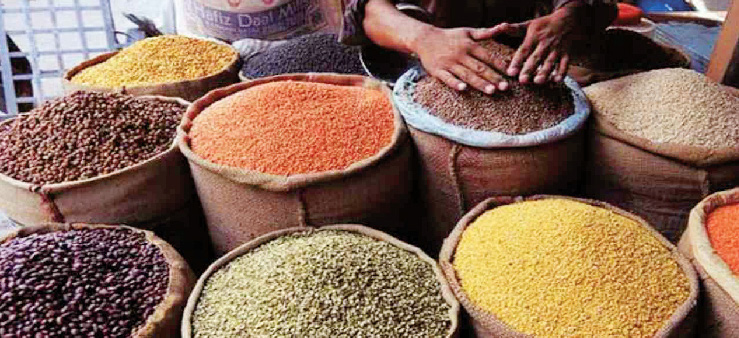
Procurement of Strategic Goods Sub-Saharan Africa
On 11th January 2023, ICIEC signed an agreement with the Bank of Africa (UK Limited) to provide a US$23.5 million Bank Master Policy – Conventional Financing to cover the non-payment risk of obligors procuring fertilizer and related agricultural inputs from ICIEC Member States. In this particular transaction, the goods were imported from various ICIEC Member States, and the Obligor was based in the UAE.
The Bank Master Policy is typically used to support the financing of the procurement of strategic goods, fertilizers, petrochemicals, steel, and agricultural commodities to and from ICIEC Member States. ICIEC’s Bank Master Policy (BMP) is a flagship credit insurance solution for banks and financial institutions that provides financial institutions the confidence and ability to offer conventional trade financing to corporates engaged in the export and import activities with ICIEC Member States, the policy is for a one year period which covers upto 90% the principal loan amount against potential losses.
The Bank Master Policy (BMP) Conventional Finance is a single/multiple (portfolio) risk non-payment policy which provides credit enhancement to conventional banks or financial institutions. The policy is designed to facilitate conventional trade finance loans, the purpose of which is to promote trade transactions that fall within the scope of ICIEC’s mandate of promoting the exports of Member States, supporting the bilateral trade between Member States therefore intra-OIC exports and imports, and the procurement of strategic goods by a Member State.
The cover facilitates financing by conventional lenders towards trade transactions involving either exports from ICIEC Member States and/or import of strategic goods by ICIEC Member States. The BMP being offered to non-Member States banks is also expected to increase strategic exports/imports from Member States for fertilizer, petrochemicals, steel and agricultural commodities.
The development impact of the ICIEC-backed facility is “closely” aligned to the UN Sustainable Development Goals (SDGs) – Goal 12, which promotes responsible consumption and production, and Goal 15, which supports Life on Land. Similarly, they are also closely aligned to ICIEC’s own sustainability strategy, which is based on the firm belief that trade and investment facilitation is an effective vehicle to achieving the SDGs. ICIEC contributes to the achievement of the SDGs in three keyways. Firstly, it contributes to the Islamic Development Bank Group’s 10-Year Strategy (2015–2025), which is aligned with the SDGs. Secondly, the ICIEC mandate is to support sustainable economic development in its Member States through the provision of its services. Thirdly, ICIEC acts as a catalyst for mobilizing private sector capital and directed towards achieving the SDGs.
Gross utilization of ICIEC support since inception reached US$189.90 billion from 138 countries, of which ICIEC Member States reached US$138.31 billion. A key priority of ICIEC is supporting intra-trade and intra-investment among OIC Member States. In 2022, ICIEC supported a combined US$6.11 billion of intra-trade and intra-investment among OIC states, representing a 36% increase as compared to the previous year. Out of that figure, US$5.34 billion represented intra-OIC trade among OIC states, and US$0.77 billion represented intra-investment among OIC states.
The transaction also falls within the scope of promoting trade and investment between Arab and African countries under the Arab African Trade Bridges (AATB) Program, of which ICIEC is the insurance lead, and the Africa Co-Guarantee Platform (CGP), comprising six members, including ICIEC, AfDB, ATI, AUDA-NEPAD, GuarantCo (part of PIDG, the Private Infrastructure Development Group), and Afreximbank, which is committed to better leverage guarantee and insurance products to de-risk investment, resulting in more trade and investment across Africa.
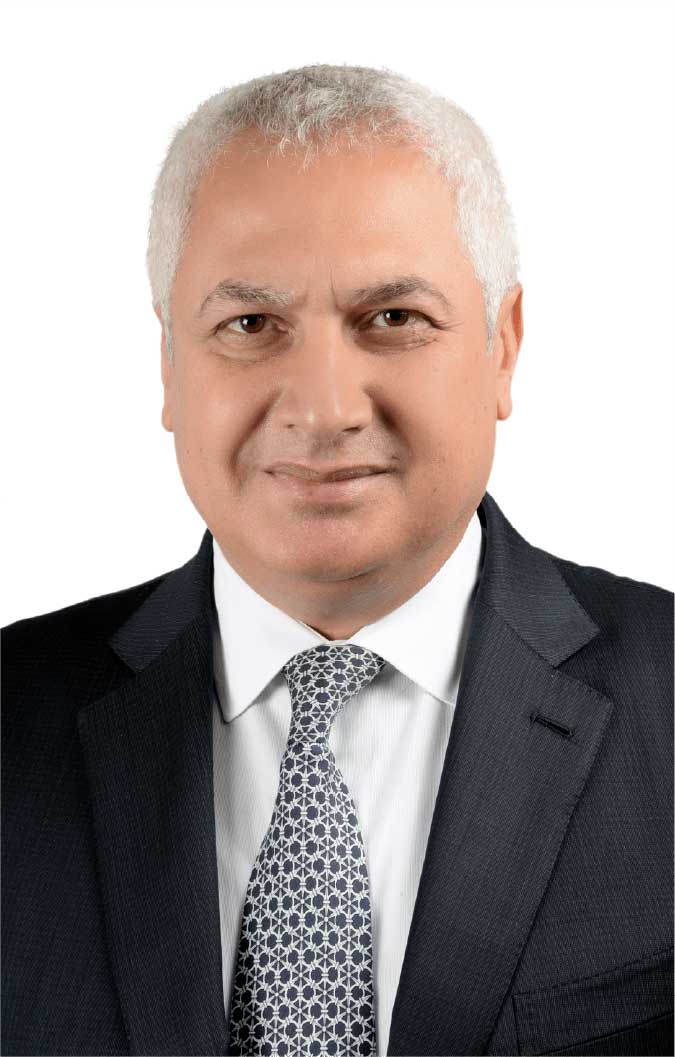



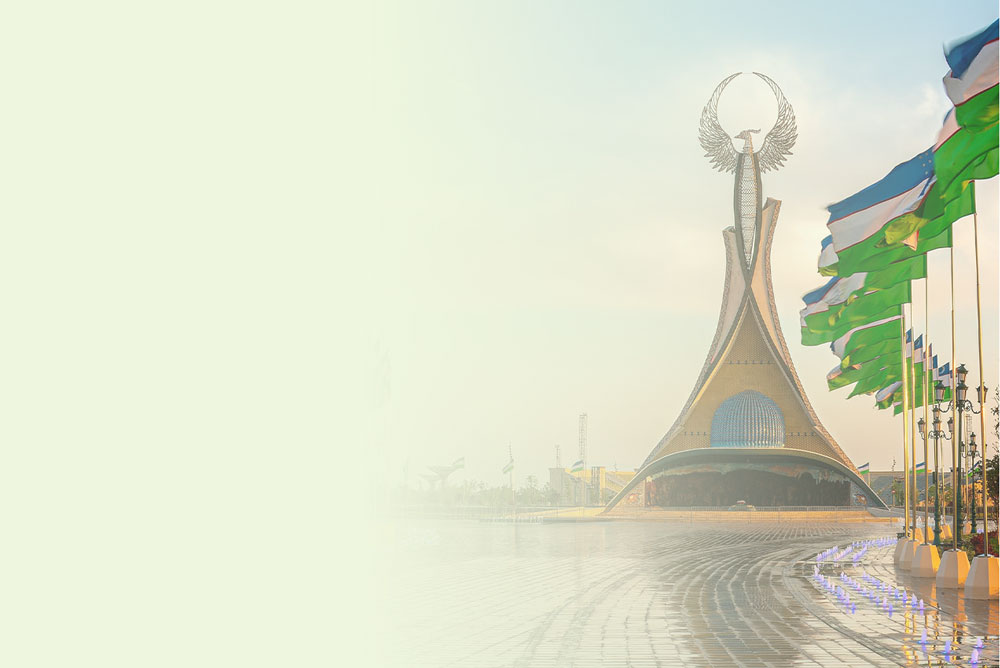
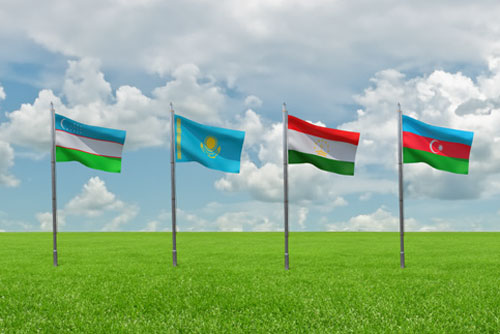
 Download Newsletter
Download Newsletter
